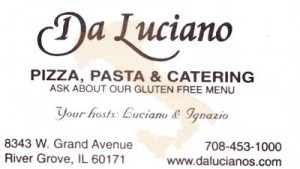Disclaimer:
The information presented in this website and the comments from Dr. Hughes are not intended to diagnose, treat, cure, or prevent any disease or psychological disorder. The information presented is not a substitute for medical, psychological or psychiatric treatment. You are advised to seek professional medical and psychological help as necessary.
Although holidays are billed as a happy, joyful time, not everyone shares that
experience. Though there are many reasons why someone might not be filled
with holiday cheer, the most prominent ones are:
1. Stress
During the holidays, there are parties to attend, gifts to purchase, menus
to plan, and fun to have. It can seem like every minute is scheduled back-to
back with no breather in sight. Even if you are someone who loves having a
huge social life and who wishes Black Friday came every Friday, it can become
exhausting and feel forced and pressured. Invitations may start to feel like
obligations and gifts become something to be checked off a list. People
typically sleep less, drink more alcohol, and eat beyond their normal diets.
The combination of all these factors can lead to physical and emotional stress.
This is preventable! Be sure to practice setting boundaries, saying “no”, and
prioritizing. With a little time to re-group, you may do a few less things, but
enjoy each of them much more. You may also keep yourself from feeling so
strung out that you need a vacation after your vacation.
2. Drama
Holidays inevitably involve family, co-workers, and friends. Sometimes, the
holidays is the only time of year you all get together to share a meal and
exchange gifts. Although this always looks warm and fuzzy according to the
movies on the Hallmark channel; often the people in one’s life can be the source
of drama that only gets highlighted under the microscope of the holidays. If
you have a family member who drinks too much and enjoys arguing politics, or
another who won’t attend a dinner if a certain cousin is there, or perhaps a few
relatives with dietary restrictions or conflict-filled marriages or unruly
toddlers or who knows what…then you know what it’s like to be forced to face
this drama head-on. If this is your life, remind yourself that the drama will
only be around for perhaps a few days, a few hours, or maybe just one meal.
3. Memories
Holidays bring on what we call an “anniversary reaction”. This means that,
without much effort, we are often able to recall events that took place on
holidays in years past. If those memories hold some sad news (for example, a
loved one who has passed), it can stir up temporary depressed feelings. These
anniversary reactions do not just happen at the holidays; they can also on
birthdays and other days that stand our in our individual memories. If you
suffer from anniversary reactions, do your best to recall the positive pieces of
the memories as well as remind yourself that you are making new memories
right now, to be remembered next year.
4. Expectations versus Reality
In my opinion, this is the #1 cause of depression during the holidays.
Beginning as early as Halloween, society is bombarded with Christmas music,
decorations, commercials, and other media telling everyone exactly how the
holidays should go and precisely how happy everyone should be. In the
media, no one is ever alone, no one has strep throat, no one ever has an
argument, and no one is ever disappointed by their gifts. Reality of course is
often, perhaps ALWAYS, different from a perfect fantasy.
If you are someone who is having a difficult holiday season, it is very easy to
feel like every other person in the world is having the most special, meaningful
day of their lives. It is this disconnect that brings on depressive thoughts and
feelings. If this is the root of your depression, take a deep breath and take in a
good dose of reality. Virtually no one has a holiday like the media describes;
be sure to tailor your expectations to your life, not to the life of fictional
characters.
With those points in mind, may your holidays be peaceful, healthy, and yes,
happy.
Dr. Carsi Hughes received her Ph.D. in clinical psychology from Northwestern University Medical School. She is a licensed clinical psychologist who specializes in adult psychopathology, clinical neuropsychology, and psychoanalytic psychotherapy. Academic appointments include Associate Clinical Professor of Psychology and Post Baccalaureate Pre-Medical Studies at Dominican University.






{ 0 comments… add one now }